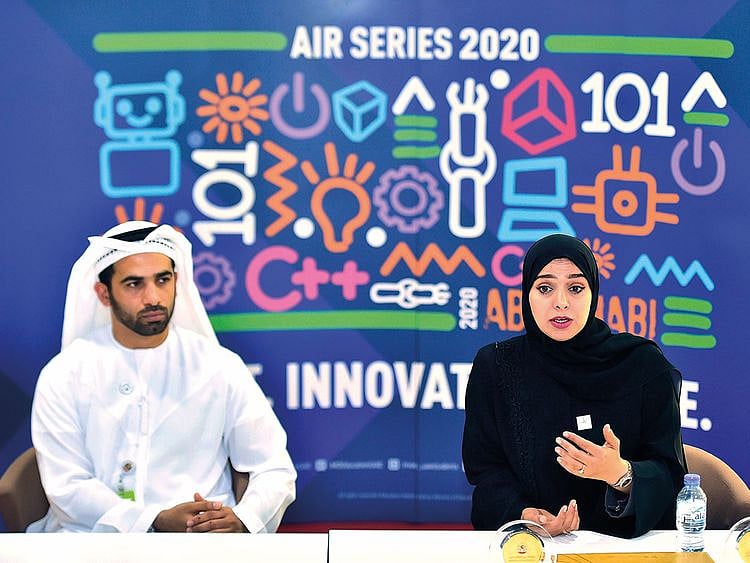UAE students to make underwater, aerial drones for contest
Ministry of Education’s Artificial Intelligence and Robotics Series starts February 2020

Dubai: UAE school students will build robots and learn about start-ups with a potential to solve real world problems during the Ministry of Education’s ‘Artificial Intelligence and Robotics Series’ (AIR Series), officials said on Tuesday in Dubai.
The sixth edition of the national contest, scheduled for February 23 to 25, 2020, at Abu Dhabi National Exhibition Centre, is expected to draw 3,700 to 5,000 public and private school pupils working in teams to make their prototypes.
New categories
The latest edition has added four new categories to its previous 20, including underwater and aerial drones. The move comes to upskill school students and align them with the UAE’s national agenda targets, said Dr Amna Al Dahak Al Shamsi, Assistant Undersecretary of the Activities Sector, Ministry of Education (MoE).
Her comments came during a media briefing at the MoE head office in Dubai to announce details of the upcoming AIR Series.
“We look at what are the current competitions that we have and what are the students’ skills that are still not covered by what we have currently. Then we look at the international picture and see which of the current competitions around that fulfils the required skills,” Dr Al Shamsi said.
“So far, you can see that a lot of the competitions before were mainly around UGVs, Unmanned Ground Vehicles. So now we want the marine and we want the air to be covered as well. So we looked at those categories; we ran a pilot last year and we had some outstanding results from the young students.”
Change makers
Khalfan Juma Al Marashda, Director, Student Skills Development, MoE, said many of the AIR Series competitions and prototypes are “relevant to a real life challenge, it’s not just a concept”.
He added: “It’s about challenges currently facing many industries. The idea here is to get the students in touch with real change and this is what we’re expecting of them after they participate in the competition … The second element is to get them into the entrepreneur mindset. Most of those challenges put the team into a situation of a start-up — so they work on budgeting, ROI [return on investment], presenting as a CEO, etc.”
Independence from humans
Grade 11 student Abdulla Jasim and seven schoolmates from Rashidiyah Secondary School, Ajman, won two categories under the Robocup challenge in the 2019 edition. The team designed robots that could play football — one side as the attacker and the other as the goalkeeper. The robots used sensors and a camera to ‘see’ the ball and plan a course of action. For the next edition, they want to make the robots ‘talk’ to each other so they can switch roles independently.
“It’s not going to be easy but we’re trying to make our robots as independent as possible from humans. They play on their own, there’s no human controller or intervention,” Abdulla said.
Abdulla added that he and his team learned skills such as programming, making electric circuits, robotics, building sensors and product design for the competition.
Sign up for the Daily Briefing
Get the latest news and updates straight to your inbox
Network Links
GN StoreDownload our app
© Al Nisr Publishing LLC 2026. All rights reserved.